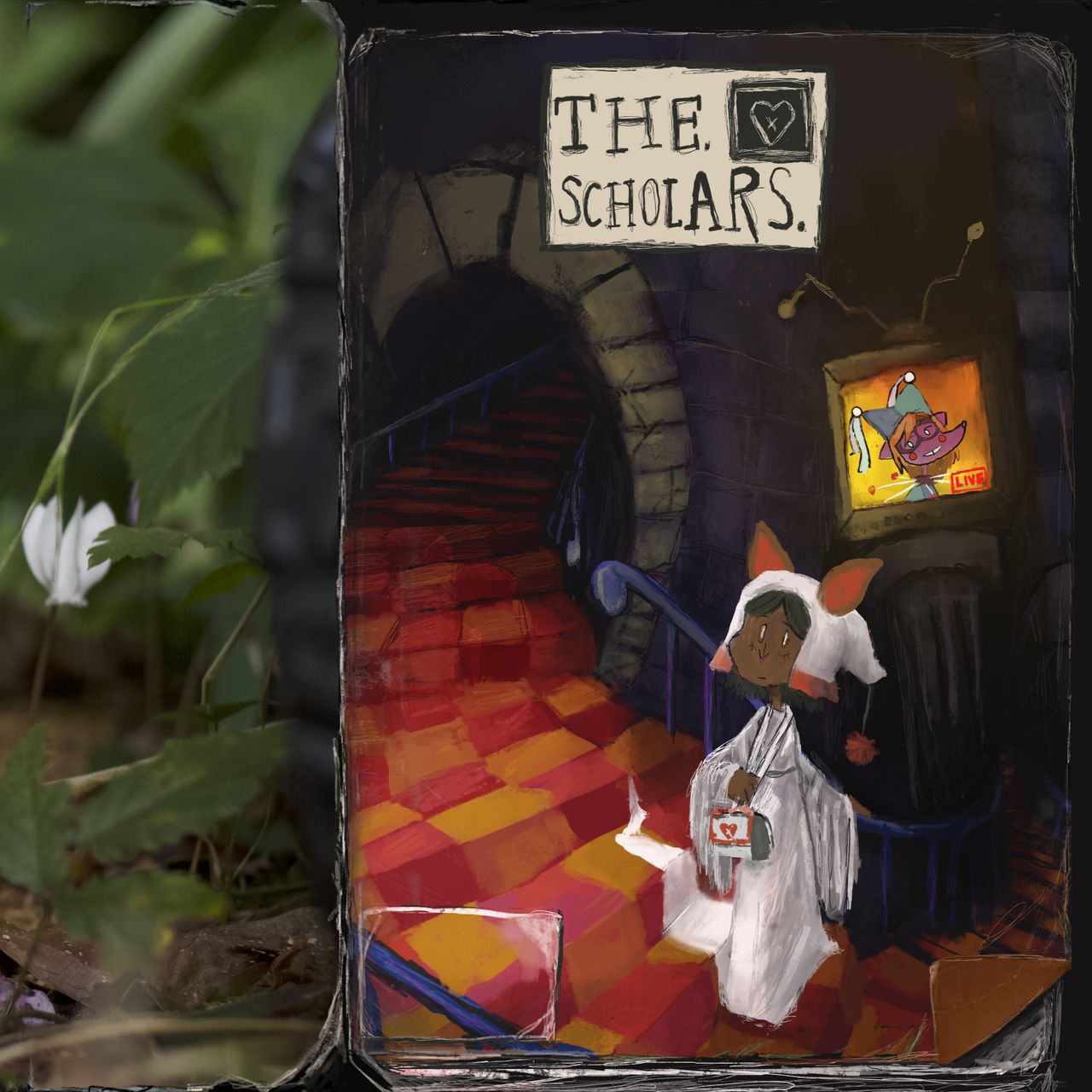More than most bands that began in the backseat of the family car, Car Seat Headrest seems well-suited for a high-concept rock opera. From the band’s earliest days, when the project was just Will Toledo recording alone in Virginia, songs were never just as simple as singer and subject—his debut Twin Fantasy was a romantic epic sheepishly masquerading as a ramshackle emo record. His 2020 record Making a Door Less Open was essentially a treatise on fame itself, and culminated in Toledo adopting the persona “Trait,” a gas-masked, bunny-eared protagonist previously introduced in a Car Seat Headrest side project called 1 Trait Danger. When Car Seat Headrest began teasing their new record, The Scholars, via an alternate reality game-style website, it felt like an appropriately elaborate rollout for a band who’s rarely taken reality at face value.
And yet, Toledo was hesitant to dive head-on into the full-scale world-building of a rock opera. To hear him tell it, he seemed afraid that he might stumble into one of the genre’s many pitfalls. “You pull something off of The Wall—it’s not necessarily going to be banging on its own. It needs that context,” he told the podcast How Long Gone. “I like when you can pull a song out and have that individual piece.” It’s a brutal assessment of Pink Floyd, though it comes from a deep respect (the original version of Twin Fantasy’s “High to Death” interpolated “Jugband Blues,” after all).
On The Scholars, every song aims to be an “Another Brick in the Wall Pt. 2”—nine self-contained epics that, Toledo hopes, will sum to a greater whole. But overburdened by a confusing plot, with no room for a listener to digest the bevvy of settings and characters he’s just introduced, The Scholars is mired in and muddied by the madcap impulses of its creator, drowning out what would otherwise be some of the band’s most inspired, experimental compositions to date. The Scholars is a rock opera for the playlist era; it wants to contain both a richly textured narrative—with all the character development, internal motivations, and rising and falling action required therein—and also nine songs that can stand alone, plucked out of context and jutted up against whatever other songs happen to land on Spotify’s autoplay.
So, the plot: The Scholars takes us to the imaginary Parnassus University, where we meet a cast of students who are all on parallel searches for meaning: our narrator, the Chanticleer; Beolco, a playwright who’s paranoid his best ideas are behind him: “A thousand ideas piled up in the tomb,” he says on “CCF (I’m Gonna Stay With You)”; Devereaux, the “son of a backwaters religious conservative” who hopes to find higher meaning on the libertine lawns of the American university (“Devereaux”); and Rosa, a medical student who can revive the dead (“Gethsemane”). There is also, of course, a local community based on dressing in furs and feathers (“Lady Gay Approximately”), which I’ll let the Redditors decipher.
